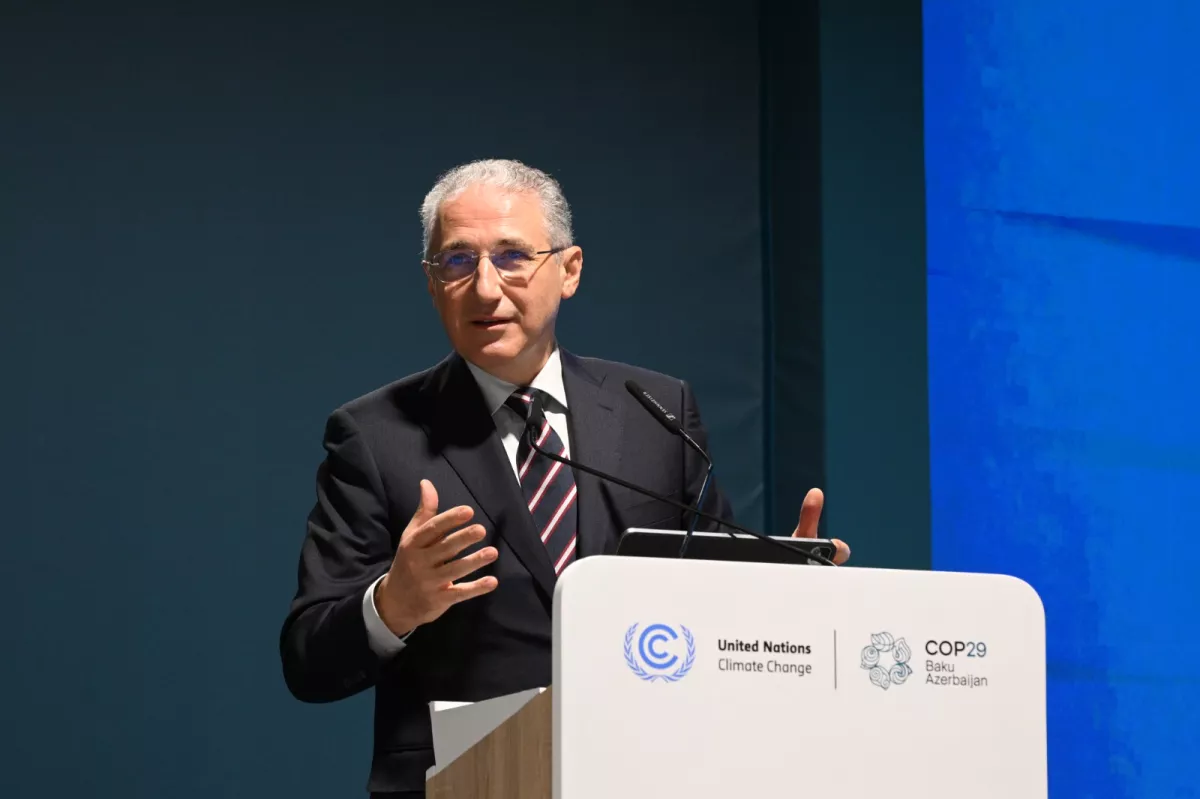Belém and its challenges Brazil prepares for COP30
As a preliminary note, this article is neither gloating nor a critique. Having successfully hosted COP29 last year, Azerbaijan sincerely wishes Brazil every success as it prepares to host COP30 next month in the city of Belém.
Belém—where exactly is that? One might be tempted to answer, “I have no idea!” To be clear, it’s not the Belém district of Lisbon, nor a resort on the Turkish Riviera. The Belém in question lies in northern Brazil. It is the capital of the state of Pará—simply Pará, without any extra qualifiers—and forms part of the Belém microregion. Geographically, it may feel a little overwhelming to place, but let’s put that aside for now.
COP30 matters to Azerbaijan because it represents continuity in the country’s climate policy. I won’t dwell on the success of last year’s COP—despite several difficulties, mostly unrelated to Azerbaijan, we managed to achieve the best possible results. Naturally, there will always be voices claiming the glass is empty rather than half full, but when realism confronts absolutism, common sense tends to prevail—even if one must endure the occasional outburst of dissatisfied loudmouths.
Azerbaijan continues to play an active role in advancing the climate agenda as COP president—a responsibility that will be passed to Brazil at COP30. To maximise the impact of its presidency, the country appointed a Presidential Climate Envoy, Mukhtar Babayev, and established a dedicated climate diplomacy unit within the Ministry of Foreign Affairs.

The connection between the climate agenda and urban development is one of the main topics of the upcoming World Urban Forum in Baku in May 2026. Let us not forget that Azerbaijan currently chairs the Committee of Permanent Representatives of the UN Environment Programme. In short, the country has, in a short period, managed to build a strong capacity, actively applied in the interests of global environmental processes as well as its national agenda. Therefore, Azerbaijan is genuinely invested in the effective functioning of COP in Brazil.
That said, the path ahead will not be easy. Last November, Azerbaijan navigated numerous challenges under circumstances that, to put it mildly, were unhelpful—and at times, very obstructive. This year promises to be even more demanding, particularly given the uncompromising positions of some key players—such as the United States, which has openly dismissed climate change as “the biggest scam in history.”
Yet Belém’s problems began long before the official discussions opened. While largely logistical, these issues risk overshadowing the substantive topics that bring participants to Belém in the first place.
And getting there takes a long time. Reaching Belém is far from easy. If you fly to São Paulo, it’s still almost a four-hour flight to Belém. From Rio, be prepared for a journey twice as long. That’s if you’re lucky—currently, there are no available tickets, and Val-de-Cans Airport in Belém (also called Belém) is completely full, with no additional flights planned.
Moreover, even getting permission to land a private plane will take some effort—let me emphasise, this is just for landing; there’s no “parking” involved. You’ll need to fly somewhere else, wait, and then return for your passengers. How reasonable it is, in general, to fly to COP on your own plane is a separate question.
Options are limited. You could take a bus or rent a car, but that will take at least 7 to 22–25 hours of driving from the nearest relatively large and still accessible airports in Brazil (many transport hubs are already sold out). Let’s not forget that, with all due respect to the country, this is not the U.S. or Germany—Brazil ranks 116th out of 141 in the World Economic Forum’s road quality report (among surveyed countries). So a car trip is quite the adventure.
However, even once participants reach Belém, they will face significant challenges with accommodation. The city’s hotel capacity is limited, and finding a place to stay during the Conference is no easy task. Even special efforts by the government to increase the number of available rooms have not solved the problem.
This, however, is hardly surprising—people always complain about prices at such forums. African delegations and representatives from the Pacific region have already voiced their outrage at the astronomical costs. Although, as we recall, attendees in Baku also complained about prices at the COP buffets. Clearly, you can’t please everyone.

But let’s return to the roads and the government’s efforts, some of which have been, to put it mildly, controversial. For instance, the decision to build a highway for COP participants through the Amazon rainforest has sparked extremely mixed reactions. The 13-kilometre stretch is primarily associated with the trees felled for the project, and despite federal authorities’ assurances of its environmental soundness, sceptics are plentiful.
Even a seemingly innocuous sanitation project has drawn the ire of residents in the Vila de Barca favela (it’s actually the fourth largest informal settlement in the country). Locals are upset about construction waste being dumped on their land, as well as the fact that sewage and other byproducts will eventually end up near their homes. And such discontent in Brazil can have serious consequences—a police raid against the Comando Vermelho (“Red Command”) on October 28 killed over a hundred people. Still, one can hope that the Brazilians will ensure COP’s security.
Problems like these are inevitable for a location cut off from major transport routes. Organisers tried to send a strong message about COP’s relevance by choosing the venue, but they inevitably face these challenges. We can only hope that both the organisers and the thousands of participants manage to overcome them, including our own delegation. We certainly wouldn’t want them to “lose the forest while searching for the trees.” After all, COP itself is at stake.








